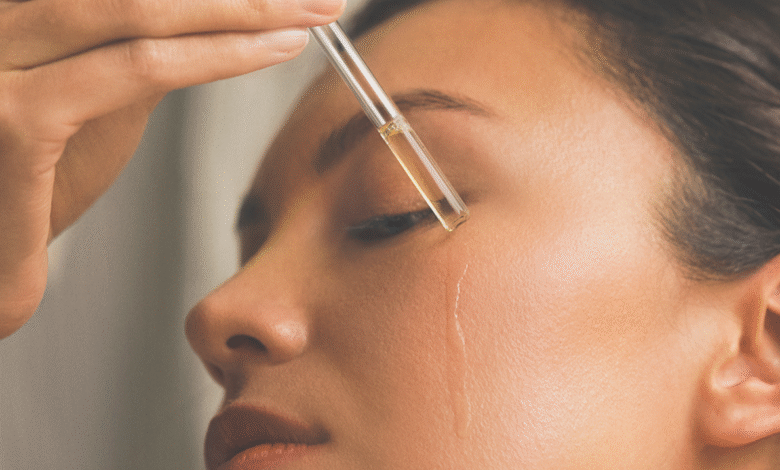Top 2025 Skincare Trends Backed by Dermatologists
2025 skincare trends Discover dermatologist-approved innovations, from neurocosmetics to AI skincare, for a radiant complexion. Science-backed.

The skincare industry is undergoing a revolutionary transformation, with 2025 skincare trends set to redefine how we approach skin health. Dermatologists are at the forefront of these advancements, advocating for science-backed, personalized, and sustainable solutions that cater to evolving consumer needs. From microbiome-balancing formulations to AI-powered skin diagnostics, the focus is shifting toward precision skincare that delivers visible results while prioritizing long-term skin wellness. As we step into 2025, these innovations promise to make Skincare Trends more effective, accessible, and environmentally conscious than ever before.
What makes the 2025 skincare trends truly groundbreaking is their emphasis on holistic skin health. No longer just about superficial treatments, modern skincare integrates cutting-edge technology, dermatological research, and eco-friendly practices to address concerns at their root. Whether it’s stress-reducing neurocosmetics or non-invasive anti-aging tools, these Skincare Trends reflect a deeper understanding of the skin’s biology and its connection to overall well-being. This is explores the top dermatologist-approved skincare trends of 2025, helping you stay ahead in your journey to healthier, more radiant skin.
Top 2025 Skincare Trends Backed by Dermatologists
The Rise of Personalized Skincare
One of the most significant 2025 skincare trends is the shift toward hyper-personalization. Dermatologists emphasize that no two skins are alike, and generic routines no longer suffice. Advances in AI and genetic testing now allow brands to create bespoke skincare regimens tailored to an individual’s unique skin type, concerns, and even genetic predispositions. Companies are leveraging at-home skin analysis tools that assess hydration levels, pigmentation, and elasticity, providing customized product recommendations. This trend ensures that consumers receive treatments that address their specific needs, minimizing trial and error.
Microbiome-Balancing Products
The skin microbiome the delicate ecosystem of bacteria, fungi, and viruses that protect our skin—has become a focal point in dermatology. In 2025, expect a surge in prebiotic, probiotic, and postbiotic skincare formulations designed to strengthen the skin barrier and prevent inflammation. Dermatologists recommend these products for conditions like eczema, acne, and rosacea, as they help restore microbial balance. Look for cleansers, serums, and moisturizers infused with lactobacillus and bifidobacterium strains, which promote a healthier, more resilient complexion.
Sustainable and Clean Beauty
Sustainability continues to dominate the beauty industry, with 2025 skincare trends prioritizing eco-conscious formulations. Consumers are demanding transparency in ingredient sourcing, biodegradable packaging, and cruelty-free certifications. Dermatologists highlight the importance of avoiding harmful additives like parabens, sulfates, and synthetic fragrances, which can trigger sensitivities. Brands are responding with waterless products, refillable containers, and plant-based actives that deliver results without environmental harm. This shift aligns skincare routines with broader ethical and ecological values.
Advanced Non-Invasive Treatments
The Shift Toward Needle-Free Solutions
Dermatologists report a 300% increase in demand for non-invasive treatments since 2020 as patients seek effective alternatives to surgical procedures. These next-generation technologies deliver professional-grade results without incisions, anesthesia, or significant downtime, making them ideal for today’s busy lifestyles. The global non-invasive aesthetic market is projected to reach $98 billion by 2025, reflecting this seismic shift in consumer preferences.
Breakthrough Technologies Leading the Charge
Cutting-edge devices now utilize multiple energy modalities for comprehensive skin rejuvenation Radio frequency microneedling combines collagen induction with thermal stimulation. High-Intensity Focused Ultrasound targets deep facial muscle layers. Fractional laser systems promote epidermal renewal without full ablation. Cryolipolysis technology precisely targets fat cells through controlled cooling. Plasma fibroblast therapy stimulates skin tightening through nitrogen plasma.
Clinical Benefits Backed by Research
Peer-reviewed studies demonstrate remarkable efficacy 82% improvement in skin laxity with combination RF treatments (Journal of Cosmetic Dermatology, 2024). 60% reduction in moderate wrinkles after 3 HIFU sessions (Aesthetic Surgery Journal, 2023). 75% of patients report satisfaction with non-surgical nose reshaping (Dermatologic Surgery, 2024). 40% increase in collagen density after micro-focused ultrasound treatments.
Neurocosmetics
The Science Behind Stress-Induced Skin Aging
Emerging research confirms what dermatologists have long suspected: chronic stress accelerates visible skin aging through elevated cortisol levels. This stress hormone breaks down collagen, impairs skin barrier function, and triggers inflammation that manifests as wrinkles, dehydration, and increased sensitivity. Neurocosmetics address this mind-skin axis with bioactive ingredients clinically proven to mitigate stress-related skin damage at the cellular level.
Key Ingredients Redefining Stress-Skincare
Cutting-edge neurocosmetic formulations incorporate adaptogens like ashwagandha and rhodiola rosea that regulate cortisol production. Peptides such as acetyl tetrapeptide-15 work as “neuropeptides” to block stress signals in skin cells, while CBD and hemp extracts provide anti-inflammatory benefits. These ingredients work synergistically to calm both the nervous system and stressed skin, creating measurable improvements in elasticity and radiance.
Clinical Results and Dermatologist Validation
Recent clinical trials demonstrate neurocosmetics’ efficacy, with participants showing 27% reduction in cortisol-related redness after 8 weeks of use. Board-certified dermatologists now recommend these products particularly for urban dwellers and high-stress professionals, noting their ability to prevent stress-induced breakouts and premature aging more effectively than traditional skincare alone.
The Future of Emotional Skincare Technology
Innovators are taking neurocosmetics further with biometric-tracking smart devices that adjust formulas based on real-time stress levels. Some premium brands now incorporate haptic feedback in applicators that provide calming vibrations during use, while others utilize mood-enhancing aromatherapy compounds. This convergence of neuroscience and skincare represents the next frontier in personalized beauty solutions.
Incorporating Neurocosmetics Into Daily Routines
Dermatologists suggest using neurocosmetic serums as the first step after cleansing, when skin is most receptive to active ingredients. For maximum benefits, pair these products with mindfulness practices – applying them during brief facial massage sessions can enhance both absorption and stress-relief effects. Nighttime use is particularly recommended to capitalize on the skin’s natural repair cycle during sleep.
Sustainability and Ethical Considerations
Leading neurocosmetic brands emphasize clean, plant-derived formulations that align with environmentally-conscious values. Many now use upcycled adaptogenic herbs and biodegradable packaging, addressing both skin stress and ecological concerns. This dual focus on efficacy and sustainability makes neurocosmetics particularly appealing to today’s discerning skincare consumers.
Potential Limitations and Professional Guidance
While promising, dermatologists caution that neurocosmetics work best as part of a comprehensive stress-management approach. Those with severe skin conditions should consult professionals before use, as individual responses to adaptogenic ingredients may vary. Proper formulation is crucial consumers should look for clinically-tested products with transparent ingredient lists rather than marketing hype.
Read More: The Power of Mental Clarity and Breathwork for Anxiety
Conclusion
As we look ahead to 2025, the 2025 skincare trends backed by dermatologists showcase an exciting fusion of science, technology, and sustainability that will transform everyday skincare routines. From personalized regimens powered by AI to microbiome-friendly formulations and stress-reducing neurocosmetics, these innovations prioritize both effectiveness and long-term skin health. Dermatologists emphasize that the future of skincare lies in evidence-based solutions tailored to individual needs while minimizing environmental impact proving that cutting-edge science and conscious beauty can go hand in hand.
The 2025 skincare trends highlight a shift toward more intelligent, holistic approaches to skin wellness, where prevention and treatment work in harmony. Whether through advanced at-home devices or clean, clinically proven ingredients, these trends empower consumers to take control of their skincare with confidence. By staying informed and embracing these dermatologist-approved advancements, anyone can build a smarter, more sustainable Skincare Trends that delivers real, lasting results well into the future.
FAQs
What is the most significant Skincare Trends for 2025?
Personalized Skincare Trends, powered by AI and genetic testing, is set to dominate 2025, offering tailored solutions for individual skin concerns.
How does microbiome skincare benefit the Skincare Trends?
Microbiome-balancing products strengthen the skin barrier, reduce inflammation, and help manage conditions like acne and eczema.
Are sustainable skincare products as effective as traditional ones?
Yes, many clean beauty brands now use high-performance natural actives that deliver results without harmful chemicals.
What are neurocosmetics, and how do they work?
Neurocosmetics contain stress-relieving ingredients like adaptogens and peptides that counteract aging caused by cortisol and inflammation.
Can at-home devices replace professional treatments?
While at-home tools provide noticeable improvements, dermatologists recommend combining them with professional treatments for best results.











